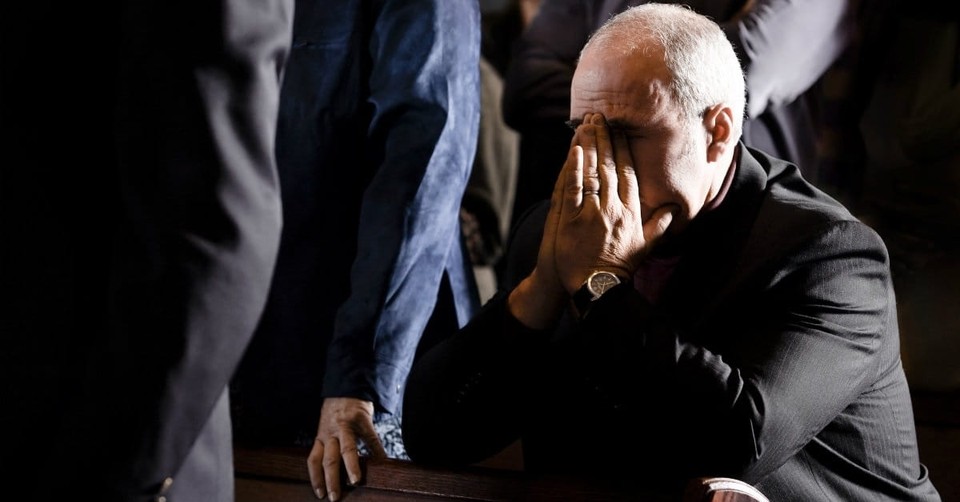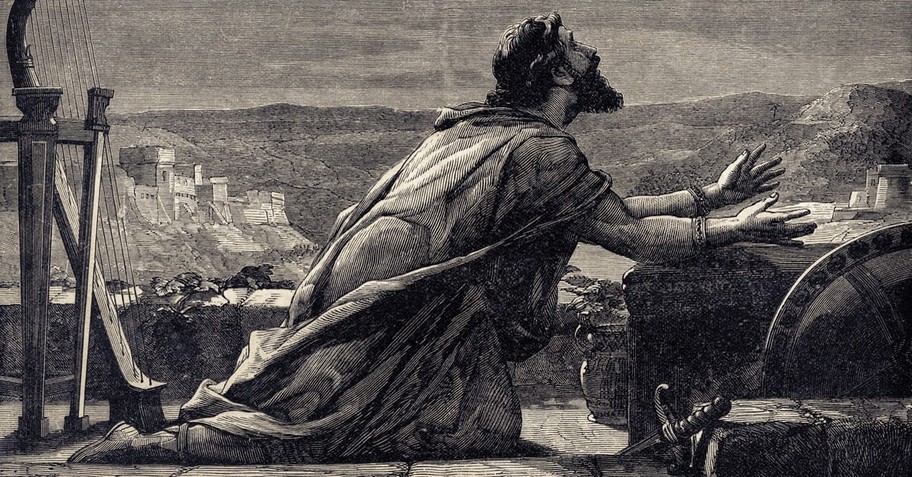3 Wise Principles for Dealing with Scandals

Joab, the hotheaded commander of King David’s army, had been out on a raid when Abner came to visit David. When Joab returned and learned that David had received Abner with grace, he was furious, for Abner had led a rebellion against David and killed Joab’s very own brother. So Joab went to the king and said, “What have you done?” (2 Samuel 3:24).
Joab is convinced that Abner came as a spy, so he decides to take the law into his own hands. He sends messengers after Abner, presumably in David’s name, calling on Abner to come back to Hebron. David knew nothing about this. Joab did it behind his back (v. 26).
Abner has been shown grace in Hebron so he has no hesitation in returning. But when Abner does return, we read: “Joab took him aside into the midst of the gate to speak with him privately, and there he struck him in the stomach, so that he died, for the blood of Asahel his brother” (v. 27).
This was a brutal revenge killing, a cold-blooded murder, a murder committed by the man who holds the highest position in the land—the commander of David’s own army! It was an outrageous scandal in David’s kingdom.
How did David deal with it?
Photo Courtesy: Thinkstock

Three Wise Principles for Dealing with Scandals
There are three principles here that give wisdom for how leaders should deal with scandals today. In two of them, we learn from David’s example. In the third, we learn from what David failed to do.
1. Tell the truth.
When David heard of it, he said, “I and my kingdom are forever guiltless before the Lord for the blood of Abner… May it fall upon the head of Joab…” (vv. 28-29)
David gives us a good example here. He states the truth clearly, openly, and without evasion. Where there is a crime, a public scandal, the truth must be known.
The first two pieces of the armor of God are the “belt of truth” and the “breastplate of righteousness” (Ephesians 6:14). Only when you know what is true, can you discern what is right. You have to get at the truth.
Photo Courtesy: Thinkstock

The Danger of False Assumptions
There were two things people needed to know about this murder. The first was that it had nothing whatever to do with David. The second was that it was entirely on Joab, who had taken the law into his own hands, motivated by a desire to avenge the death of his brother (v. 30).
There is a warning here about the danger of making false assumptions: Joab was David’s commander. Joab murdered Abner. It would be natural for people to assume that David had at least winked at this being done. But the truth was that David knew nothing about it.

2. Mourn deeply.
The king lifted up his voice and wept at the grave of Abner, and all the people wept. (v. 32)
Telling the truth matters when there has been a crime or a public scandal, but words will ring hollow to the one who hears them if the one who speaks them does not feel the pain of what has happened.
Everyone could see the depth of David’s sorrow over what had happened:
David said to Joab and to all the people who were with him, “Tear your clothes and put on sackcloth and mourn before Abner.” And King David followed the bier. They buried Abner at Hebron. And the king lifted up his voice and wept at the grave of Abner, and all the people wept. (vv. 31-32)
Photo Courtesy: Thinkstock

What the People Heard, They Saw in His Heart
Abner had been a thorn in David’s side for years, but when he died this brutal death, David grieved for him. “So all the people and all Israel understood that day that it had not been the king’s will to put to death Abner the son of Ner” (v. 37).
The reason the people knew the truth about David was not only that David told the truth, but it was also that David mourned deeply over what had happened to Abner. What the people heard in his words they saw in his heart.

3. Act with justice.
David gives us a marvelous example of telling the truth, and mourning deeply. But acting with justice was something that David failed to do. “I was gentle today, though anointed king. These men, the sons of Zeruiah, are more severe than I. The Lord repay the evildoer according to his wickedness” (v. 39).
Scholars have different opinions on David’s way of dealing with Joab. Was he wise and prudent in allowing Joab to continue commanding his army? Or was this a failure of leadership?

What Should David Have Done?
When there was a brutal crime, there were words of truth, and there were heartfelt tears—but
Joab was never brought to justice. That left a stain on David’s kingdom. David’s failure to exercise justice was a decision that he came to regret. It remained on his conscience for the rest of his life.
Why did David not execute justice? We are not told. Perhaps David thought, “I showed grace to Abner, so how can I bring justice to Joab?” But Abner killed Asahel, Joab’s brother, in self-defense. Joab killed Abner in a brutal act of aggression. There was no comparison there.
Photo Courtesy: Thinkstock

When Justice Isn't Done
Perhaps it was that David did not feel strong enough to deal with his commander. Joab was a powerful figure! Perhaps, having refused to rely on Abner, there was part of him that felt he could not survive without having Joab beside him. In the NIV translation, verse 39 says, “Though I am anointed king, I am weak, and these sons of Zeruiah are too strong for me.”
Whatever the reason, Joab’s murder of Abner left a stain on David’s kingdom. Justice was not done and this remained on David’s conscience for the rest of his life.

A Better King
There are so many ways in which David points us wonderfully to our Lord Jesus Christ. We see in David a foreshadowing of the King who gathers people from every tribe and nation and makes them one by his grace.
But there are also times when David points to our need of a Savior, and places where we see that we need a greater king than David. And I think this is one of them right here in 2 Samuel 3. The story makes us say, “We need a better king than David!”
David has been reaching out with grace to bring people together. But will there be justice in his kingdom? Sometimes! More for some than for others! No wonder Isaiah longed for the One who would sit on David’s throne and establish it with justice (Isaiah 9:7; see also Jeremiah 23:5).

Grace and Justice in the Same Kingdom
How do you hold grace and justice together in the same kingdom? Is it even possible? You would not want to live in a kingdom where there is grace without justice—where men like Joab can commit a cruel murder without consequences. And you would not want to live in a kingdom where there is justice without grace.
Where can we find grace and justice in the same kingdom? And how will the two be held together?

Where Grace and Justice Meet
The answer is that you find grace and justice bound together in the kingdom of Jesus Christ. Here’s why: At the heart of Christ’s kingdom stands the cross. And the cross is the place where grace and justice meet.
Grace comes to us because justice fell on Jesus.
The New Testament makes clear the answer to the question, “Why did Jesus have to die on the cross? “…So that he [God] might be just and the justifier of the one who has faith in Jesus” (Romans 3:26).
It is not simply that God comes to those who believe and says, “I’ll just sweep your sins under the carpet.” No, God acts with justice when you come to faith in Jesus Christ. Justice has been carried out on Christ at the cross, so that his grace and mercy, which reconciles you to God, may be released to you.
The stroke of justice fell on him. So that, in him, the gift of grace may come to us. Despite all the scandals and all the seductions, Christ will establish his kingdom with justice and with grace.
This article originally appeared on unlockingthebible.org. Used with permission.
Colin Smith (@PastorColinS) is senior pastor of The Orchard Evangelical Free Church in the northwest suburbs of Chicago and a Council member with The Gospel Coalition.
[This is an adapted excerpt from Pastor Colin’s sermon “The King’s Gentleness” in the series The Life of David.]
Photo Courtesy: Thinkstock/mbolina
Originally published June 29, 2018.








